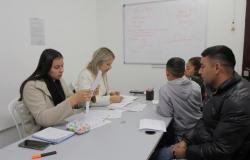EU leaders have begun to negotiate the distribution of the main positions in the community institutions, a puzzle subject to delicate political, geographical and gender balances. The Christian Democrats Ursula von der Leyen and the Maltese conservative Roberta Metsola start as favorites … to repeat at the head of the Commission and Parliament; the Portuguese socialist António Costa wins to preside over the European Council and the Estonian liberal Kaja Kallas as high representative of Foreign Policy. These appointments, put on track but not resolved by the unrest of the far-right leader Giorgia Meloni – cornered in the dialogue process – and of several small countries, will be completed with the distribution of portfolios of the Brussels Executive, in which Italy and France demands top-level responsibilities. Its composition requires the endorsement of a European Chamber in which the ideological families on which the construction of the Union has been based retain a slim majority and the extreme right has gained weight. The misgivings that Von der Leyen aroused due to his willingness in the campaign to accept Meloni as a partner seem to have been overcome. Like the judicial problems of Costa, a leader of European socialism who resigned as prime minister when he was investigated for corruption scandals, but about whom suspicions have faded. The EPP’s intention to occupy that position for half a term to make visible its victory on 9-J is ineffective, disproportionate and makes the pact difficult. The enthusiastic support of the conservative Portuguese Government for this candidacy is significant, an unthinkable circumstance in today’s polarized Spain.
The extraordinary challenges facing the EU recommend a balanced pact as soon as possible, extending to the College of Commissioners and its program for the next five years to advance community integration. The fight for the most relevant portfolios is presumed bitter. Spain intends to place Teresa Ribera in a powerful department linked to the climate. Pedro Sánchez’s influence in the Union is a magnificent starting point. However, the retreat from the ambitious objectives of the Green Pact threatened by Brussels in recent months and the new composition of the European Parliament predict a less ambitious environmental policy than that sponsored by the vice president and a lower prominence in that area.
€2/month for 4 months
#Argentina






